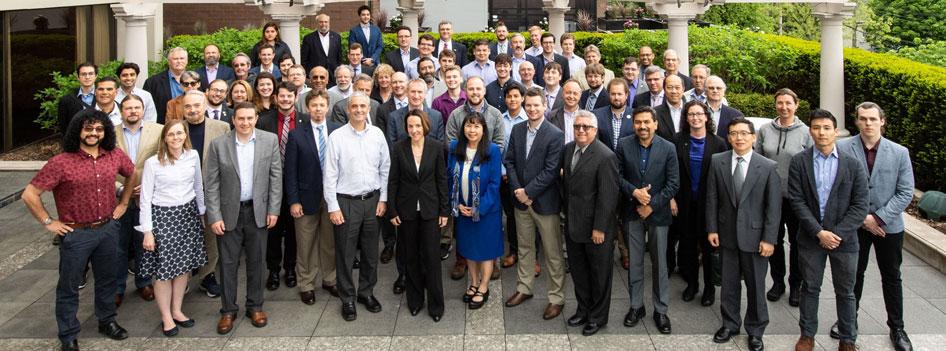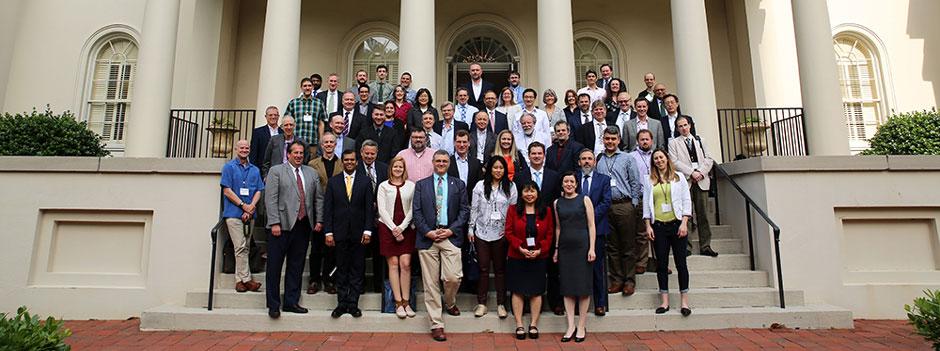LLNL supports several University Consortia to help build the pipeline of talent for the next generation of nuclear national security technical experts. The goal is to bridge the academic and Department of Energy (DOE) national laboratory knowledge bases to build broader support for non proliferation research and development.
LLNL has been actively engaged since the inception of the DNN consortia structure in 2012, contributing to the training of dozens of students so far. LLNL’s world-class laboratory facilities and expertise provide unique opportunities for students to work at the cutting edge of national security research as part of their training. This successful collaborative enterprise has forged deep and enduring connections between LLNL and academia, and resulted numerous job opportunities at LLNL for consortium graduates. Through ongoing student–mentor collaborations, the university consortia program is training the next generation of nuclear science and security experts to lead the nation's research endeavors across government, industry, and our national labs.

Consortium for Enabling Technologies and Innovation
The Consortium for Enabling Technologies and Innovation (ETI), led by the Georgia Institute of Technology, consists of 12 universities and 10 laboratories with a mission to direct multidisciplinary research and innovation that enable the technologies for predictive understanding of tomorrow’s needs in nuclear nonproliferation, while training the next-generation of scientists and bridging the gap between basic university research and the NNSA laboratories' mission-specific applications. The consortium is organized into three thrust areas: (i) data science, machine learning, and high-performance computing, to enable (ii) advanced manufacturing, and (iii) nuclear detection technologies. LLNL research is broadly aligned across the spectrum of activities in the ETI consortium.
More information on the ETI consortium can be found at https://eti.gatech.edu/
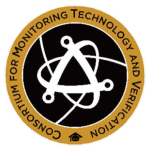
Consortium for Monitoring, Technology, and Verification
The Consortium for Monitoring, Technology, and Verification (MTV) is led by the University of Michigan. With 14 member universities and 13 contributing national labs, MTV encompasses a broad range of topics related to nuclear nonproliferation. MTV has three main thrust areas: fundamentals of nuclear physics, signals and source terms for nuclear nonproliferation, and nuclear explosion monitoring. MTV research includes theoretical, experimental, and computational work. LLNL’s research touches on nearly every topic in MTV, including many ongoing collaborations with academic researchers.
More information on the MTV consortium can be found at https://mtv.engin.umich.edu/
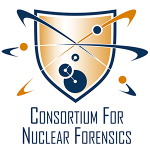
Consortium for Nuclear Forensics
The Consortium for Nuclear Forensics (CNF) led by the University of Florida and consisting of 16 universities (including 4 MSIs) and 7 National Laboratories (NLs) is providing the research, development, and human capital needed to create and develop new scientific discoveries, technologies, and capabilities in support of NNSA's Defense Nuclear Nonproliferation Research and Development (DNN R&D) Office as related to nuclear forensics. The team is addressing the gaps and challenges within important research fields in nuclear forensics that include Rapid Turnaround Forensics, Advanced Analytical Methods, Ultrasensitive Measurements, Signature Discovery, and Prompt Effects and Measurements. The consortium is taking advantage of the team’s expertise in radiochemistry, geochemistry, analytical chemistry, nuclear physics, nuclear material science, shock physics, quantum-enabled sensing, high performance computing (HPC)/data science, and training/education. The CNF has a cross-cutting area (CCA) focused on HPC and Data Science, which will facilitate HPC and Artificial Intelligence (AI)-driven capabilities to accelerate solutions to scientific challenges in nuclear forensics.
More information on the CNF can be found at: https://cnf.eng.ufl.edu/

Nuclear Science and Security Consortium
The Nuclear Science and Security Consortium (NSSC) is a partnership among seven universities and six national laboratories in a collaborative effort to train the next generation of nuclear security experts. Established in 2011 with support from the National Nuclear Security Administration (NSSA) and administrated at UC Berkeley, NSSC prepares science and engineering students for careers in the nuclear nonproliferation and security field by engaging in practical research addressing a span of fundamental and applied problems. The Consortium students and professors work together with national laboratory scientists to conduct cutting-edge R&D in four focus areas (Nuclear & Particle Physics, Radiochemistry & Forensics, Nuclear Engineering, Radiation Detection) and four cross-cutting areas (Nuclear Data, Modeling & Simulation, Nuclear Security, Education). LLNL is a long-term NCCS partner with ongoing collaborations across all focus and cross-cutting topical areas.
More information on the NSSC can be found at http://nssc.berkeley.edu/.
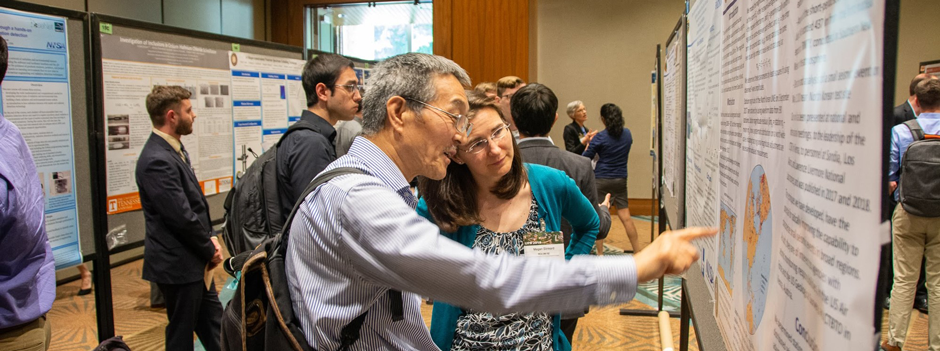
Projects
Detailed project descriptions are available through the password protected link below.
Please email Stacy La Pineda at lapineda1 [at] llnl.gov (lapineda1[at]llnl[dot]gov) to request the password needed to access the detailed project information.
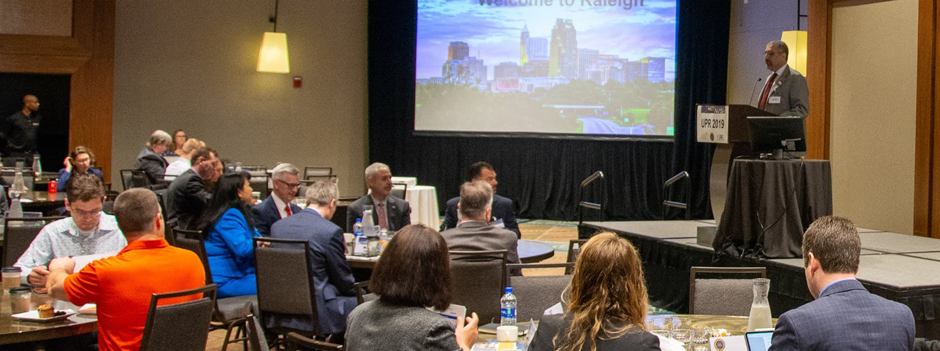
Researchers
Detailed researcher information is available through the password protected link below.
Please email Stacy La Pineda at lapineda1 [at] llnl.gov (lapineda1[at]llnl[dot]gov) to request the password needed to access the detailed researcher information.

Student Resources
Working at LLNL
- Overview of the Lab
- LLNL Student Portal
- LLNL Student Opportunities
- LLNL Careers Page
- About Livermore
Summer Opportunities
- Academic Engagement Office
- International Nuclear Safeguards Policy Internship (joint with Middlebury Institute)
Other In-residence Opportunities
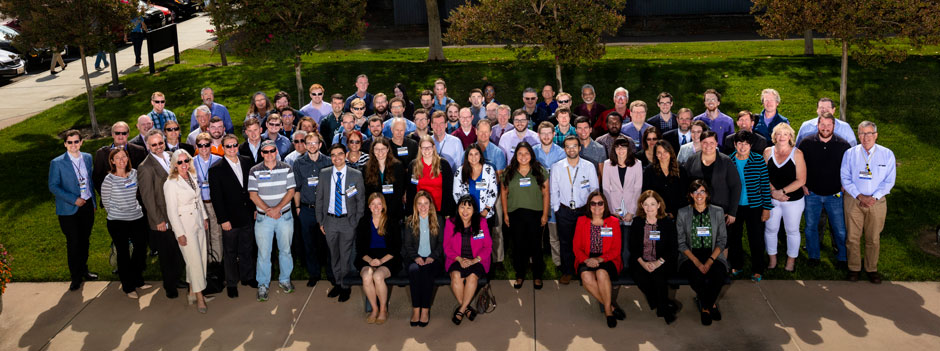
Lab Capabilities
LLNL offers a wide range of opportunities. The facilities listed below highlight some of the capabilities available.

Frequently Asked Questions
The consortia are funded by DNN R&D to do academic research and train students in areas relevant to our nonproliferation mission. Each student funded by the consortium is required to spend at least one summer at a national lab. This time may be spent doing PhD research, learning new skills (such as data science techniques), or exploring related areas of interest (such as policy). Time at the lab is paid by the consortium through the student’s home institution. Time for lab mentors should be primarily covered by the researchers existing projects. In cases where funding is not aligned to timeline or area of expertise, additional internal LLNL funds may be available to the mentor.
The current consortia are made up of an established group of professors who were successfully awarded the funding. Students who wish to get involved with a consortium should look at the consortia websites (ETI, MTV, NSSC) to find out which universities and professors are involved. Then contact the consortium professors directly to learn about research opportunities.
Yes! LLNL has a variety of internship programs that are not solely affiliated with the consortia. See the Projects page for a list of available opportunities.
Academic affiliations within the consortia are determined by the academic leadership of each consortium. Contact consortium leadership directly (see right sidebar) with questions about extending collaborations to additional institutions.
There are several means of participation open to LLNL staff. You may mentor a student, either short term or longer term. Mentoring may include guiding student research while student is onsite or remotely while the student is at their school, providing feedback on publications and dissertations, and/or serving on a dissertation committee. Student research may be directly aligned with their Ph.D. topic, or outside their main research area (with the goal of broadening their skill sets). LLNL staff may host a professor for an in-residence sabbatical. LLNL staff may also act as subject matter experts to help provide guidance and advice on academic research directions, working primarily with faculty. LLNL staff may also visit universities and present on their research to encourage future student engagement and collaboration.
There is no obligation on the part of either the student or the mentor to commit to a job beyond the term of the student’s visit to LLNL. In practice, successful partnerships often continue when the student returns to their university, especially as publications or the student’s dissertation are prepared.
You will need to post a job opening for your group. Keep in regular contact with the student as they move toward graduation. Many students do not realize the extended timelines required for hiring at the labs, encourage the student to let you know 6 months or more before they plan to graduate. Remember to keep your LLNL consortium POC in the loop as you move toward hiring, they can answer any questions that come up, and may be able to find additional coverage for a prospective employee’s time in the event that you are not able to fully support the position.
Students who are hired directly by LLNL through an LLNL project are paid competitively. Students who come to LLNL on funding from their home institution may be eligible for a cost of living supplement. Please contact your POC for more information.
Students may come for brief visits of a few days to become acquainted with LLNL, summer internships of 10-12 weeks, or longer periods to complete a Ph.D. in-residence (1-4 years).
Time for lab mentors should be primarily covered by the researchers existing projects. In cases where funding is not aligned to timeline or area of expertise, additional internal LLNL funds may be available to the mentor. To apply for these funds, please send a request to the POC affiliated with the student’s consortium (see right sidebar). The request should include a brief (1 paragraph) description of the proposed research, names of academic faculty and students involved in the collaboration, expected start date and duration, effort level, estimated cost of mentor support, and an explanation as to why the researcher’s existing funding cannot be used for this activity.
No, internal LLNL consortium funding cannot be used for research, only for student mentoring.
Summer students should have a well-defined project that can be completed within the term of the visit (typically 10-12 weeks). Students are expected to present this research at the summer student symposium at the beginning of August. Mentors should be onsite and available for weekly meetings with the student during their visit. Extended travel or vacation during the student’s residence is not conducive to a successful student experience.
Although the majority of students work only on unclassified projects, in some cases it may be possible for a student to pursue classified research. Please talk with a POC for more information.
Professors value the opportunity for students to gain hands-on experience at a national lab. Professors often have many students, often with diverse interests outside the mentor’s area of expertise. LLNL mentors can provide more targeted expertise as well as valuable additional mentoring support. These collaborations contribute substantively to the professor’s research, provide students with potential job opportunities, and give both the student and professor additional mentoring support. Additionally, LLNL often has advanced capabilities and facilities that are not available at the professor’s home institution, which may be crucial to the professor’s research.
Student internship programs offer LLNL researchers additional help in executing their projects. Successful internships may evolve into extended collaborations, students returning for additional internships and ultimately postdoc or staff positions at the lab. The consortium program builds a valuable pipeline for future LLNL staff.
The consortium program gives students the opportunity to experience life at a national lab, which is different in some ways from careers in academia. Students also are able to develop professional relationships with experienced lab staff, who can provide guidance and expertise on the student’s research that may not be available through their home institution. Students receive training in areas of immediate need for the national labs, building highly valued skills and perspectives. The consortium program also provides networking opportunities across a diverse array of research areas, exposing students to the breadth of opportunity for impactful careers in national security.
One option is for the LLNL mentor to pay for the student’s summer salary, if they are able. This option helps support the student’s additional expenses while onsite. Alternatively, the student can come through the professor’s consortium funding, but there is not currently a mechanism for supplementing their pay here to manage the additional housing costs, so it may be a financial hardship for the student. Contact your POC to pursue either of these options.
A third option is for the student to apply to one of the summer internships through an LLNL institute program. These programs accept a cohort of students who attend seminars and networking events together for a portion of the time, and spend the remainder doing research with their LLNL mentor. If a student is accepted into one of the institute programs, they receive a stipend through the program that can help with cost of summer housing.
Lastly, there are some more general internships (funded through LLNL) that are posted by groups who need specific projects worked on over the summer. More information on internship programs can be found here.
Students who are hired directly by LLNL through an LLNL project are paid competitively. Students who come to LLNL on funding from their home institution may be eligible for a cost of living supplement. Please contact your POC for more information.
The faculty mini-sabbatical program is designed to bring top academic talent from universities across the U.S. for a 1-3 month visit to the Laboratory to develop collaborations and exchange knowledge, and skills. The Faculty Sabbatical Program has more information and instructions on how to apply.


